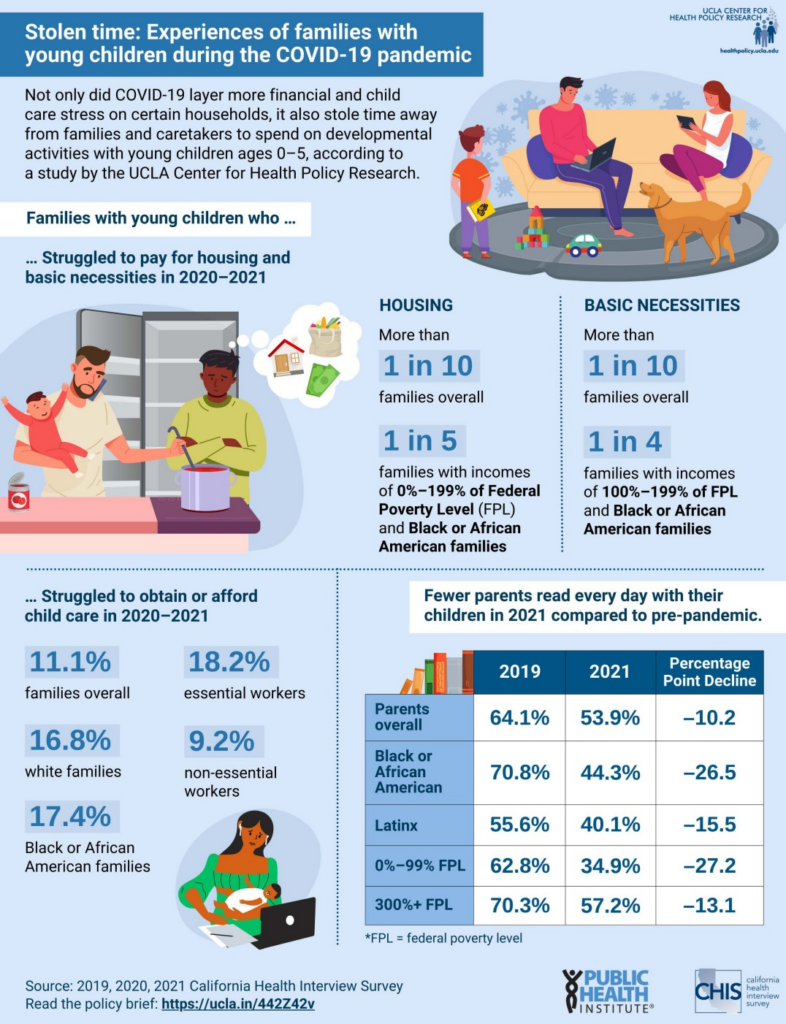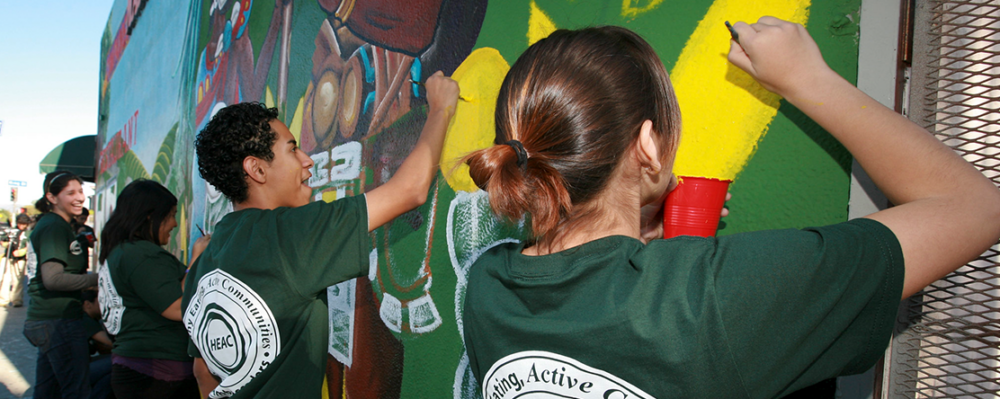
Brief: Experiences of Families With Young Children During the COVID-19 Pandemic, 2020 to 2021
- Nicole Lordi, MSC(d)
- Sean Tan, MPP
-
Expertise
Research – Quantitative -
Programs
Nicole Lordi, Researcher -
Strategic Initiatives
COVID-19

A study from the Public Health Institute, in partnership with the UCLA Center for Health Policy Research, found that challenges with child care and financial stresses during the COVID pandemic may have greatly diminished opportunities for California parents to interact with their young children.
This policy brief uses 2020 and 2021 California Health Interview Survey (CHIS) data to describe the stressors related to financial, employment and child care that the pandemic placed on families with young children. In addition, the study examines changes in parental involvement behaviors that may have long-term effects on children’s development and health, and also looks at the disproportionate impacts experienced by families of color.
Read the brief
Close interactions between parents and their young children, such as reading, singing, or playing outdoors are critical and contribute to a child’s learning and development. The study revealed that parents were challenged in providing these types of experiences and interactions with their young children (ages 0-5) during the COVID-19 pandemic. As a result, young children had fewer opportunities to engage in activities that promoted language, literacy and interpersonal skills, which may have long-term effects on a young child’s development and health.
The first few years of a child’s life are some of the most critical to future growth. Parents should have access to child care programs that offer developmental opportunities for young children.Nicole Lordi, MSC(d)
Study co-author and PHI program director
Findings
- Families in California with children ages 0–5 experienced a range of financial stressors during the COVID-19 pandemic in 2020 and 2021, struggling to pay for housing, basic necessities, and child care—when they could find child care. Latinx and Black parents experienced more COVID-related financial stressors than other racial and ethnic groups.
- From 2019 to 2021, which includes the pandemic years, daily reading to young children by a parent or family member showed a significant downward trend. Latinx and Black parents, as well as parents in the lowest and highest income categories, had the greatest decreases in daily reading.
- The proportion of parents or caregivers who read to their young children every day decreased from 64.1% in 2019 to 53.9% in 2021.
- Families who were in the lowest and highest income categories experienced the greatest percentage point decreases for daily reading—about 27 and 13 percentage points, respectively.
- Daily reading decreased more than 26 percentage points from 2019 (70.8%) to 2021 (44.3%) for Black parents.
- Daily reading to children (40.1%) was 8 percentage points lower in 2021 than in 2020 and more than 15 percentage points lower than in 2019 (55.6%) for Latino parents.
- Due to the COVID-19 pandemic, nearly 12% of parents reported difficulties in making their rent and mortgage payments and nearly 13% reported difficulties in paying for necessities such as bills or groceries.
- The pandemic also created child care challenges. 11.1% of parents reported difficulties in securing child care or paying the increased costs. Data also showed that twice the number of parents (18.2%) who were essential workers reported difficulties with child care compared to those who were not essential workers (9.2%).
The study was funded by First 5 California, which aims to improve the lives of young children and their families through a comprehensive system of services.

Read the full press release from the UCLA Center for Health Policy Research.
Originally published by UCLA Center for Health Policy Reserach
Work With Us
You change the world. We do the rest. Explore fiscal sponsorship at PHI.
Support Us
Together, we can accelerate our response to public health’s most critical issues.
Find Employment
Begin your career at the Public Health Institute.


